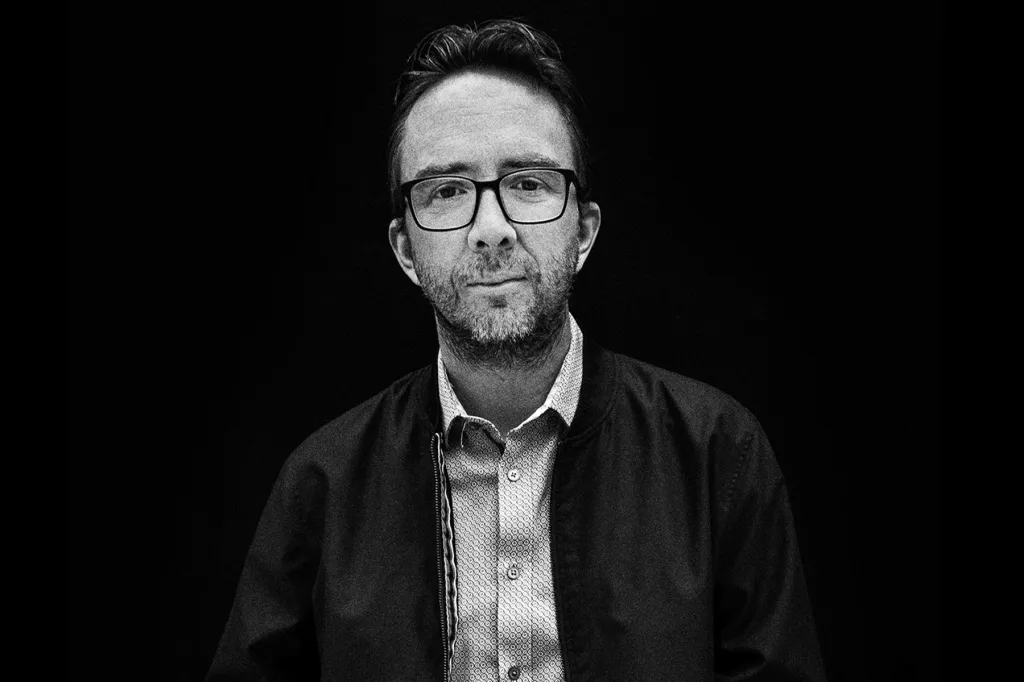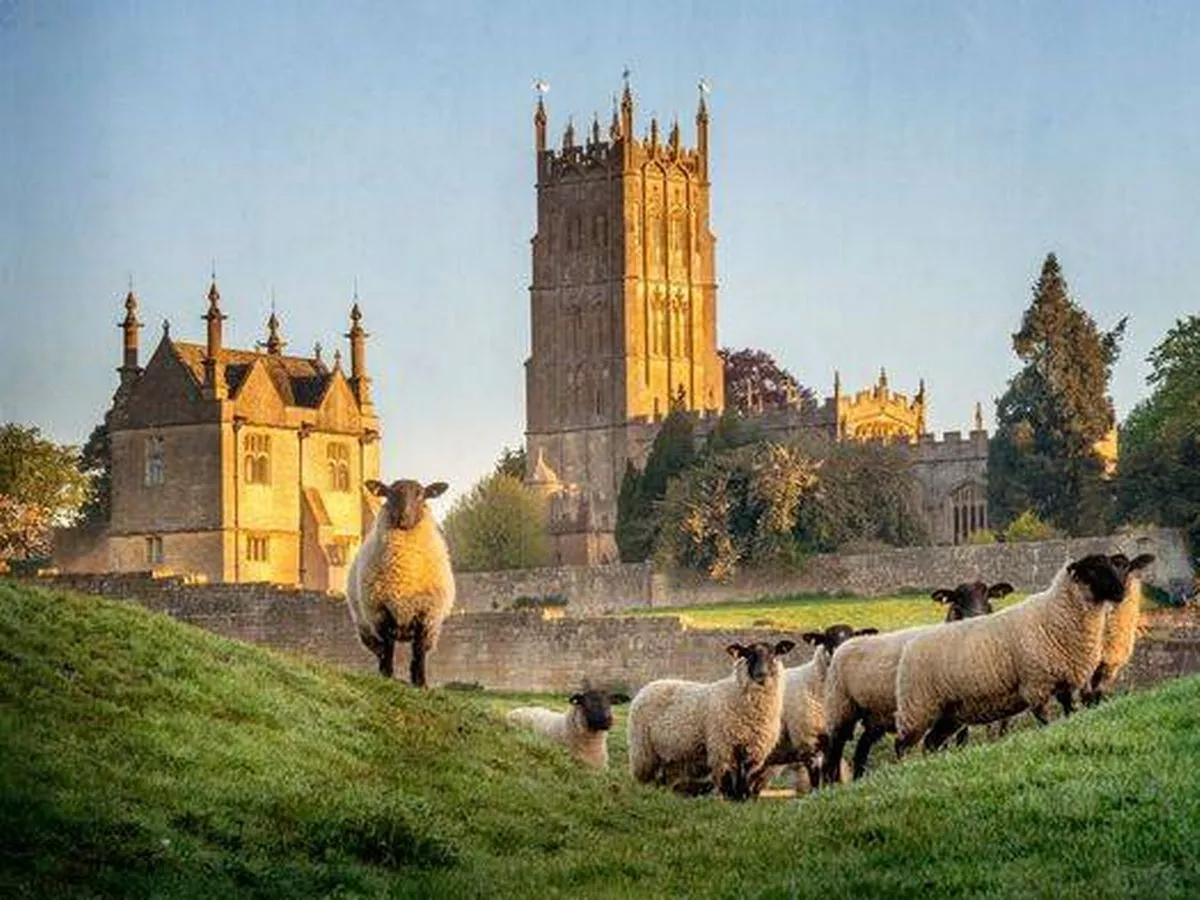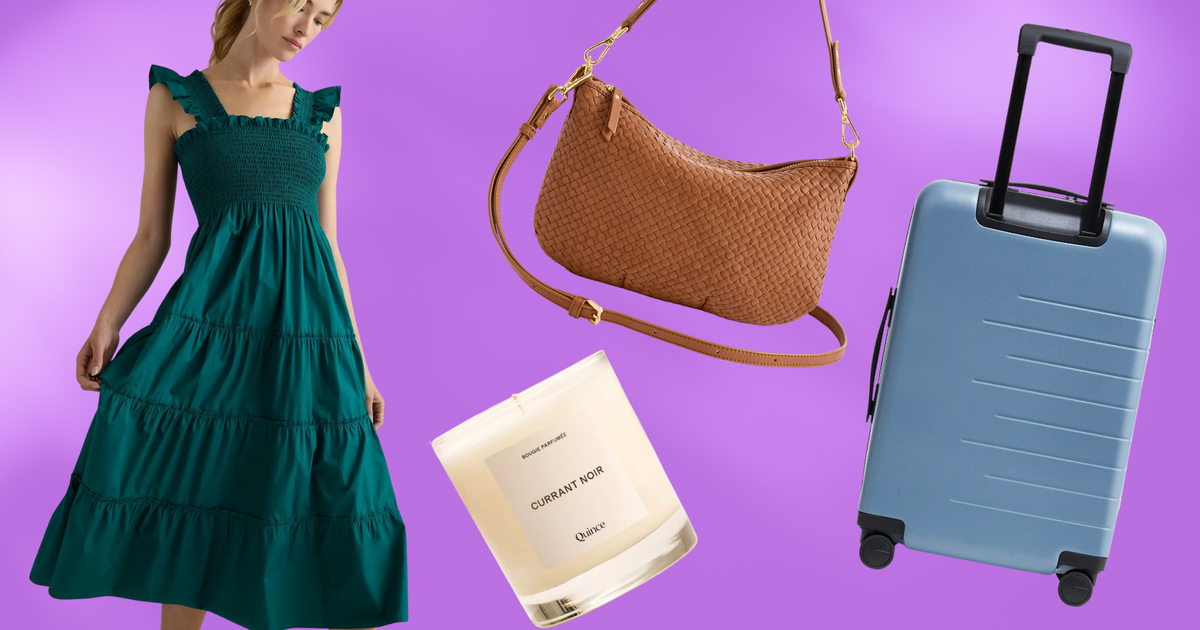
“I’m always frustrated because I think a lot of people perceive comics as the ones everyone knows who live in New York and L.A., says Joe List, a stand-up comic whose name is not equated with Jerry Seinfeld or Kevin Hart, but nonetheless lives in New York and has a large and devoted following. “There are thousands of comedians that no one has ever heard of who are making some kind of a living at this.”
In February 2023, List, who has nursed a desire to make films since he was a teenager, decided to put his money where his mouth is — more than $25,000, he estimates — and shine a spotlight on Tom Dustin, a comic who largely unknown on a national level but revered in his hometown of Boston and Key West, Florida, where he currently lives and owns the Key West Comedy club.
The result is the truly independent documentary, Tom Dustin: Portrait of a Comedian, a very freewheeling film that comedy fans can watch on Punchup Live for $6 — a deal for those who enjoy sharp standup and compelling stories from a hard-living raconteur who thinks nothing of being filmed walking the streets of Key West in a Winnie-the-Pooh onesie. (As List explains in this interview, pub crawls in onesies are a thing there.) More info on the doc can be found here.
What Portrait of a Comedian lacks in structure — this is List’s first film and often plays like an ambitious home movie — it makes up in authenticity. List, who also grew up in the Boston area, and Dustin are ride-or-die friends, and their conversations are sometimes painfully direct. In between clips of the film subject’s standup sets, Dustin, who’s rarely seen without a drink or a cigarette, talks about his and his father’s bipolar depression, his struggle with alcohol and regrets he’s harbored throughout his life. And yet, he comes off as a man who’s comfortable in his skin, not the sad sack that the previous sentence might suggest he is.
The stories are also worth the price of admission, such as when Dustin and List take turns recounting the time a trio of prostitutes robbed of every cent they had brought with them on a drunken trip to New Orleans.
List, who’s been sober since 2012, Zoomed with Billboard from a park in Denver while on break from a series of shows there, to talk about his documentary, his friendship with Dustin and his own experiences in the often grueling business of standup.
Was making a documentary always sort of on your bucket list?
I have so many things I want to do. I want to make narrative features. I want to make documentaries. I want to make short films. I want to do standup. I want to play professional baseball. I want to go to the dentist. I want to be in a band. It’s one of many things I always wanted to do. I always try to take the path of least resistance. I’m like, a documentary is definitely easier than writing a script, getting actors and rehearsing. Of all the things I wanted to do, it seemed like the most doable.
Was it fairly inexpensive to make?
In terms of movies, it’s a very cheap, low-budget movie, but I paid 100% of it out of my pocket, so it was certainly more than my financial advisers would have liked. I think it ended up being somewhere between $25,000 and $30,000.
It was a three-person crew. My friends Patrick Holbert and Matt Salacuse were both cameramen on the movie. They did most of the camera work, and I shot some B-roll. And Patrick edited it. We had two cameras; no sound guy and Patrick did all the editing. Then we hired a guy to color-correct. Then, I had to fly them down, put them up, and color correction took a long time. Then, more edits and then we had to pay for a song. We got a John Prine song which was like $7,000 so that was one-third of the budget. I think music is always the most expensive thing to a movie.
Why did you want to make Tom Dustin the subject of your documentary?
There were a few reasons. Tom is such an interesting guy. We’ve been close friends for 25 years, and Tom has a million great stories. The very earliest idea for documentary was for me to film Tom telling all these great stories because he’s hilarious and one of those classic comedy characters. I think I say it in the film: he’s pure comedian — a comedian to the core.
Then, what ended up happening was he gave us so much about his mental health and emotions and feelings towards me that it became a lot more than I expected and better than I expected. I had a feeling that him running the comedy club he owns would be a part of it, and he’s an alcoholic, although he hasn’t had a drink in two and a half months or something like that.
That’s good news. I was reading some reviews of your film, and one writer guessed that you might have done this because you didn’t think Tom would be around much longer because of his alcohol consumption the documentary.
Well, there is that. Tom has always been one of those friends that, if I don’t hear from him, I’m like, “Is he dead? I hope he’s not dead.” When we were younger, [I thought] it was because he was wild. And now he’s into his 50s, and he’s been smoking for so long as well. I feel like your 50s is when you start getting the bill for whatever life you’ve been leading.
I hope he lives a long time obviously, but again, I really wanted to just capture this guy. He’s such a legend in Boston. Every comedian who’s met him, which is a lot of comedians, when they heard I was making a movie about Tom, was like, “That’s going to be good.” It’s convincing the people who don’t know him.
It’s clear from the documentary that you guys have a deep friendship.
Yeah, it’s really beautiful. I’m a mental case myself, so I have a hard time taking it in and feeling the feelings, but yeah, he got really emotional and open about his feelings for me — behind my back, which is more meaningful.
In the documentary, he talks about being bipolar, and his father’s mental illness. A lot of writers and creative people I know suffer from some form of depression mixed with anxiety. I feel like it’s a common component of being creative.
Absolutely. I don’t know why this is. I struggle with horrible anxiety and/or depression and OCD. I was just talking to my buddy about this. I’m like walking around this beautiful park in Denver, last night’s show was amazing — the shows are sold out — and I’m sitting there thinking, “Oh my god, I’ve got to change my life. I’ve got to do something. I don’t know what it is.”
Tom’s father was bipolar, and I think Tom is bipolar. As we discussed in the movie, there were times where he just wouldn’t leave his house. We lived together and he wouldn’t leave the house for days and days. He wouldn’t shower. Depression is such a hard thing for me to understand, but I think part of it has to do with an overactive mind — certainly that’s the case with anxiety. And if your mind is overactive, it gives you a lot of time and space to think of creative things. Nowadays, I don’t know anyone, artist or not, who’s not depressed.
Also, the hard thing, especially with social media now, is you get these great compliments, emails and comments where you go, “Oh wow, I’m the man.” But then if you’re going to take those in, you also have to take in the ones where people are like, “You’re a piece of shit scumbag. You suck.” And you think, “Well, they know more than the others. They see the real me.” I feel like there’s never been a more difficult time to be a sane artist.”
I love how at the very beginning of the documentary he’s in a suit and then you see him walking around Key West wearing Winnie-the-Pooh pajamas.
Yeah, we only shot like three-and-a-half days in Key West. One of the days was the onesie pub crawl. Key West has these things where everyone puts on a onesie and walks around to the bars. So, for one-third of the movie he’s dressed as Winnie-the-Pooh.
Tom talks about a breakup with a girl in high school made him want to be a comedian. Was there a pivotal moment in your life where you thought, I want to do this?
I don’t know if there was a moment. Like I said earlier, there were so many things I wanted to do, and I was obsessed with standup when I was a young kid. I was born in 1982, so I was little during the real comedy boom. When I was 9, 10, 11, 12 — it was on VH1, MTV, HBO obviously, A&E. So, it was just always on and my family would go out and rent a Gallagher video, or Elayne Boosler or Louie Anderson or George Carlin or Cosby.
We would go out and pick out the tape and put it on top of the TV. We would have dinner, and then say, “Okay, time to pop it in.” I was the youngest in my family, so the other kids were out doing stuff, and it would be me and all the adults. It was one of the few times I really saw the adults in my family enjoying themselves, laughing. I think that was something that really made me go oh boy, my parents like that. Maybe if I do that….
Right.
When I graduated high school, I also wanted to be a filmmaker and an actor but it seemed like there was stuff in the way of those things. You had to get an audition or a camera somehow. Where standup, it felt like all right, I can just go to this place and put my name in the bucket.
Are you also from Boston?
Yeah, I grew up in Whitman, Massachusetts, south shore about 35 minutes south of Boston.
I’ve heard that you one of your goals is to support up-and-coming comics and you often put them on your bills. Can you talk about that a little bit?
Yeah. I’ve been so lucky and taken care of in my career. First of all, Boston has all these old legends around, which we address in the movie a little bit. Guys like Don Gavin and Tony Vee and Mike Donovan and this guy Kevin Knox who has passed. Those guys were all so good to us young comics in that scene. I met Nick Di Paolo in Boston. I got to open for all these guys at the Comedy Connection in Boston. And Nick Di Paolo took me on the road and Gary Gulman took me on the road and really taught me how to do comedy in a lot of ways.
Then later, Colin Quinn was really a mentor and Louis C.K. after that. I’ve always collected these father-like figures who helped me so much. So, I try to always be as good as I can to younger comics because I was in that position for so long.
You thank Joe Rogan in the credits. Do you consider yourself part of the “manosphere,” and what do you think of that term?
I don’t know. It’s funny because I was just in Austin last week. I did Mothership, and I didn’t see Joe, but the club is amazing and I love it. I’ve done Rogan a few times, but I’m not a comic that popped off from Rogan. I mean if you look up my name in Joe Rogan, it’s people going, “This is the worst guest ever. This guy sucks. He folded. He’s boring.” I think a lot of the fans of that show think of me as a cuck liberal idiot.
I really like Joe. I mean, politically, I was very disappointed that he endorsed Trump, but I think that he’s a good guy. He’s very nice to comics, and he built an amazing place for young comics and established comics. It’s really special what they have going on at Mothership. And thought I disagree with so much of what Joe does, I think it’s from the heart. He genuinely believes it. I see what a lot of critics say about Joe. I understand, but a lot of it is misguided.
What’s next for you?
Right now, we’re in preproduction on a documentary about SkankFest, which is an awkward name because it makes it sound like this crazy thing. But it’s just a big comedy festival that Luis Gomez started. It’s been in Vegas the last couple of years. It’s in New Orleans this year and we’re going to go shoot it and make a documentary about the history of the festival. We’re raising money right now. Other than that, I’m just touring standup. I’m in Denver right now. I’m at The Comedy Works all weekend. I’ve got a new hour of material, and I’m just trying to pump out material and make movies when I can.
That’s the thing. Having seen you live and watched some specials, I’m impressed by how little repetition there is in your sets. How are you able to be so prolific?
I don’t really know, and it’s one of these things I try not to think about too much or dissect too much because I’m afraid I’ll lose the ability to do it. A big part of it is. I’m on the road all the time. Not as much since I had a kid but still a lot. I do five shows a weekend, and by the fifth show I’m like, I just can’t say that same shit again. It’s ADD and wanting to come up with something different.
Once you’re performing to people who are coming to see you — which, I have a lot of fans, which is nice — it makes me want to come up with new material. And it’s a little easier to create material because you don’t have to win them over. They already like you. So, whatever you’re saying they’re on board. That helps. I never set out to be like, I’m doing a new hour in a year or whatever. I just kind of write when I think something is funny, and then all of a sudden, you’re like, oh shit, I’ve got a new hour.
Do you like being on the road?
I love it. Now it’s hard because my son is almost two, and he really loves me and is attached. So, he gets very bummed out when I leave. I’m mindful that there’s a limited time at each age, so that makes it much more difficult than it used to be. But at the same time I can get a lot more done because we don’t have a nanny, and when I’m home, he’s hanging on me all the time. I’m sitting in Denver right now. I love exploring new neighborhoods.
I like the isolation of just being one-on-one with my opener. We bounce jokes. I like the shows. I like to travel. I live in New York so it’s great to get out of New York, too. New York is a city that you’re happy to leave for a couple of days.
Your wife, Sarah Tollemache, is also a stand-up comedian. How do you manage your parenting responsibilities and dual comedy careers?
The way we make it work is basically, we take turns doing spots. She’ll do a spot one night. I’ll take the night off and stay with the baby. And vice versa the next night. And if we both have spots, we have a couple of babysitters. Both of our nieces live here, and we have a friend who lives across the street. So, we make it work, and when I work cities, where we have family, we’ll bring the whole gang. So somebody can watch him when she opens for me. And then a couple times she’s gone on the road while I’ve stayed home and watched the baby. It’s just a matter of taking turns, doing the best we can. And so far it’s working out. We love it.
The last time I saw you, you were wearing a Springsteen t-shirt. Are you a big music fan?
I’m a huge music guy. Springsteen and Pearl Jam are my two main [artists] – they raised me and I’ve seen Pearl Jam live like 53 times now. I’m from a very small, blue-collar town, so Springsteen just spoke to me so much as a kid and still now as an adult. I always say Bruce Springsteen is the most important person that I’ve never met. Then I’m a huge Clash guy, The Pogues.



